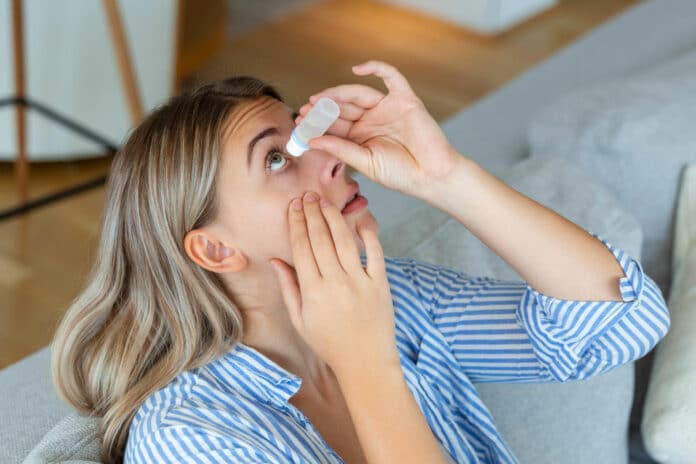A new compound from the University of Illinois Chicago may replace eye injections for people with an eye condition that leads to blindness. This condition called wet age-related macular degeneration, causes vision loss due to leaky blood vessels in the eye.
Researchers, led by UIC’s Yulia Komarova, have discovered a small molecule that can repair the damage from AMD and stimulate healing. Moreover, this drug can be administered using eyedrops, making it a better option than the current method of frequent eye injections.
Komarova, associate professor of pharmacology at the College of Medicine, said, “The idea was to develop something that can be more patient-friendly and doesn’t require a visit to the doctor’s office.”
Komarova’s compound targets a protein called End Binding-3 in blood vessel cells. In a recent study, the researchers wanted to see if stopping this protein could prevent the harmful leakage in wet AMD.
They used computer methods to create a small inhibitor, which could be applied as eyedrops instead of injections. When they tested it on animals with wet AMD, they found that using it twice daily for 2 to 3 weeks reduced eye damage.
Further research showed that the inhibitor worked by reversing age-related genetic changes. Aging causes inflammation and low oxygen levels in the eye, leading to gene activity changes connected to the effects and symptoms of wet AMD. Komarova and her team found that their inhibitor undid these genetic changes, returning gene activity to a healthy state.
Komarova said, “We reduce the effects of the stressor on endothelial cells, and we improve regenerative processes, accelerating healing.”
Since blood vessel leaks and low oxygen levels also contribute to various other health issues, Komarova’s team wants to test this inhibitor in models of conditions like lung injuries, diabetic eye problems, stroke, heart disease, and even age-related brain changes. They are also exploring whether an implantable lens, like a contact lens, can deliver the drug to the eye more effectively than eyedrops.
The paper includes several authors from UIC, including co-first-authors Quinn Lee, Wan Ching Chan, Xinyan Qu, and others. They have a broad range of expertise in various fields.
This study presents a promising development in treating eye conditions, with the potential to replace injections with eyedrops. The focus on targeting the EB3 protein and its positive results in animal models of wet AMD suggests a promising avenue for future research and clinical applications in treating various medical conditions related to blood vessel leakage and hypoxia.
Journal reference:
- Quinn Lee, Wan Ching Chan, et al., End binding-3 inhibitor activates regenerative program in age-related macular degeneration. Cell reports Medicine. DOI: 10.1016/j.xcrm.2023.101223.
